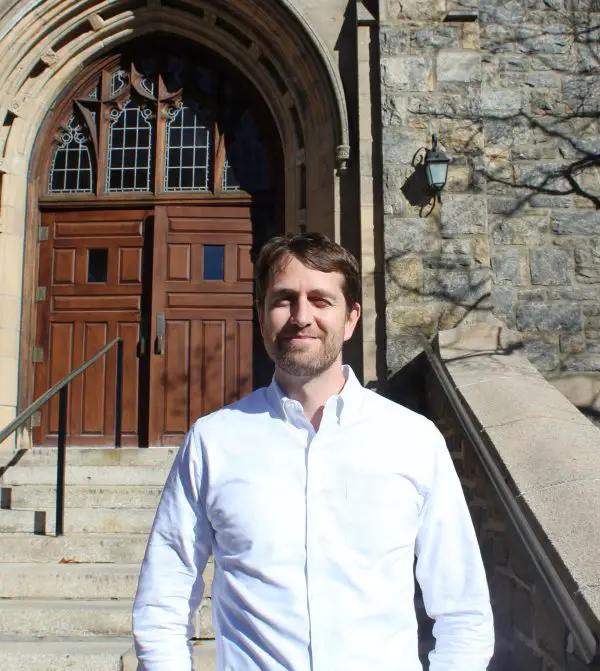Pace Law launches clinic to help food and beverage entrepreneurs past legal hurdles
A new program from Pace University’s Elisabeth Haub School of Law, scheduled to launch in the spring, will address legal problems for a growing class of entrepreneurs in the Hudson Valley food and beverage industry.
The law clinic can serve a dual purpose, according to Jonathan Brown, a former Yale Law School lecturer who was hired by Pace last month to direct the program. The clinic helps students gain valuable experience working in a growing area of law, while helping to nurture sustainable food efforts regionally.

“This is the only opportunity students at this law school will have within the school year to practice real transactional law, draft and negotiate contracts and navigate regulations,” Brown said. “And not only do that, but do it for clients who are doing really exciting work.”
The clinic will be a class offered to a group of between four and eight law students in either their second or third years, and also include a weekly seminar component. Students will provide free legal services to clients, focusing on transactional work, including negotiating contracts, real estate and tax issues and food safety regulations. The clinic will focus its efforts on clients who are dedicated to helping the food system become more sustainable and equitable, Brown said. While there are no set geographical boundaries, Brown said most likely the need for face-to-face meetings will limit the clinic to businesses in the region.
The program will be funded by a two-year grant of $400,000 from Pace Law alumnus Rob Sands, the CEO of the publicly traded Constellation Brands beverage company headquartered outside Rochester. The grant will fund the law clinic as a two-year pilot program.
The program is part of a broader Pace-Natural Resources Defense Council Food Law initiative, a collaboration between the law school and the NRDC to expand the capacity of the legal community to help build sustainable and healthy regional food systems.
“The clinic is the primary means that we are achieving this,” said Margot Pollans, the faculty director of the Pace-NRDC Food Law Initiative. “The clinic can directly provide those services, but also is focused on training the next generation of lawyers to be able to provide these services.”
Pollans said the school is working on additional attorney-training programs related to the initiative that it hopes to have launched in the spring.
Farmers and food and beverage entrepreneurs can face challenges from all different directions in getting a business launched, according to Brown and Pollans. Food safety laws are often more geared to large-scale food and beverage practices. There can be challenges with land use law, particularly in urban areas. In the Hudson Valley particularly, there can also be roadblocks from the affordability of land.
“And it’s not necessarily that there is always a hurdle, it can be more of a need for legal assistance to navigate the network of tools that exist to try to make farmland more affordable for farmers,” Pollans said.
As the food and beverage production industry has grown in the Hudson Valley, so too has the legal industry around it, Pollans said.
“It’s definitely growing as an area of study in law school, there are now five or six law schools that have clinics devoted to some aspects of food law,” Pollans said. “And huge demand for law students to work on these issues.” She cited the Food Law Student Network, a national group of students that advocates for food law programs. The network held its first national conference in 2015.
“There’s a huge interest from students, and I also think more and more job opportunities,” Pollans said.
Pace Law is working with the NRDC to help get the word out about the program to food and beverage businesses. It will run a program at the Young Farmers Conference to be held at Stone Barns Center for Food & Agriculture in Pocantico Hills.
The Pace program will launch at the start of the the spring semester in mid-January.
“It seems more important than ever, the work that people are doing from the ground up to improve the sustainability of the food system,” Brown said. “Thinking through issues of justice and access in the food system. That very much has to come from the ground up. And we think the work the clinic is going to do in helping those organizations is incredibly important.”